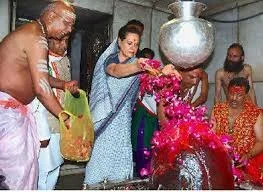on the malaria bit in the blog, the sentiment he is expressing is the same sentiment that used to be expressed for hepatitus b and HIV in the 90's.
in the interview below, Varaprasad reddy the founder of shantha biotech which produced the first hep-b vaccine in India talks about his experience when he attended a biotech conference in the U.S/west. he says, the reason goras were so interested in vaccinating the "third world" in 80's and 90's, is because goras didn't want to catch hep-b and HIV during their sex trips to the "third world".
and interestingly, it's these active malaria(communicable disease) and HIV public health programs that saved India during pandemic. it's this public health infrastructure that was adapted to handle chini virus, which "advanced economies" didn't have.
View: https://youtu.be/T4L-MG4XBFc
It's not just Malaria but it's over all cleanliness that hits you when you travel to India.
Was in India for few weeks last month and most of it was in Hyderabad. For most of my stay I had throat and nasal infections.
I could go on about things that I noticed but pretty sure most are already aware.
Unfortunately in 2023, my Visit to India was during peak summer and it was a mistake. couple of days in I had heat stroke and was delirious for a week.
On positive side, I concur with the author that govts in India seem to have taken it upon themselves to make cities greener. This was very visible in every city and town I visited.
The central scheme of subsidy for rooftop solar is a big hit. We got it done and it went with minimum effort with subsidy coming back into account. You even get an app that lets you track the production in monetary terms. With in a decade this scheme has potential to have a significant impact.







 in India, however I don't want to burn my eyes looking at political Xitter so can't bother to provide you "evidence"
in India, however I don't want to burn my eyes looking at political Xitter so can't bother to provide you "evidence"